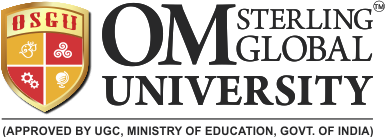The Bachelor of Vocation (B.Voc) in Medical Lab Technology is an innovative program designed to impart specialized skills and comprehensive knowledge required for a career in medical laboratory technology. This program is structured to bridge the gap between theoretical knowledge and practical application, making graduates highly competent and industry-ready. Institutions like OSGU Vocational offer this program, providing students with a robust curriculum and hands-on experience. Here are some of the specialized skills you can gain with a B.Voc in Medical Lab Technology.
Core Medical Laboratory Skills
Sample Collection and Handling
One of the fundamental skills in medical lab technology is the ability to collect and handle biological samples accurately. Students learn various techniques for drawing blood, collecting urine, and other body fluids, ensuring that samples are collected in a manner that maintains their integrity for accurate testing.
Laboratory Safety and Protocols
Adhering to safety protocols is crucial in a medical lab setting. The B.Voc in Medical Lab Technology trains students in maintaining a sterile environment, proper disposal of biohazardous materials, and the use of personal protective equipment (PPE). Understanding and following these protocols help prevent contamination and ensure the safety of lab personnel.
Diagnostic Techniques and Procedures
Hematology
Students gain expertise in hematology, which involves the study of blood and blood-forming tissues. This includes skills in performing complete blood counts (CBC), blood smears, and identifying various blood disorders. Proficiency in hematology is essential for diagnosing conditions like anemia, leukemia, and clotting disorders.
Clinical Biochemistry
Clinical biochemistry focuses on the chemical analysis of bodily fluids. Students learn to measure and interpret levels of glucose, cholesterol, enzymes, hormones, and other biochemical markers. These skills are critical for diagnosing metabolic disorders, liver and kidney diseases, and endocrine problems.
Microbiology
The program covers microbiology extensively, teaching students to identify and analyze microorganisms such as bacteria, viruses, fungi, and parasites. Skills in culturing, staining, and microscopic examination are developed, which are essential for diagnosing infections and guiding appropriate treatments.
Advanced Laboratory Techniques
Molecular Diagnostics
Molecular diagnostics is a cutting-edge field that involves analyzing genetic material to diagnose diseases. Students learn techniques such as polymerase chain reaction (PCR), DNA sequencing, and electrophoresis. These skills are crucial for identifying genetic disorders, cancers, and infectious diseases at a molecular level.
Immunology
Immunology involves the study of the immune system and its functions. Students gain skills in performing immunoassays, such as enzyme-linked immunosorbent assay (ELISA) and flow cytometry. These techniques are vital for diagnosing autoimmune diseases, allergies, and monitoring immune responses in various conditions.
Instrumentation and Technology
Laboratory Instrumentation
Proficiency in operating and maintaining laboratory instruments is a key component of the B.Voc in Medical Lab Technology. Students learn to use sophisticated equipment such as spectrophotometers, centrifuges, and automated analyzers. Understanding the principles and applications of these instruments ensures accurate and efficient laboratory testing.
Information Technology in the Laboratory
The integration of information technology in laboratories has revolutionized the field. Students are trained in laboratory information management systems (LIMS), data management, and electronic health records (EHR). These skills enable efficient data handling, result interpretation, and maintaining accurate patient records.
Quality Control and Assurance
Quality Control Procedures
Maintaining the quality and accuracy of laboratory results is paramount. Students learn to implement quality control procedures, including calibration of instruments, running control samples, and adhering to standard operating procedures (SOPs). These practices ensure the reliability and validity of test results.
Regulatory Compliance
Understanding regulatory standards and compliance is essential for working in a medical laboratory. The program covers guidelines set by organizations such as the Clinical Laboratory Improvement Amendments (CLIA) and the International Organization for Standardization (ISO). Knowledge of these regulations ensures that laboratory operations meet legal and quality standards.
Read Also: How Do Vocational Training Courses Improve Employment Prospects?
Research and Development Skills
Research Methodology
The B.Voc in Medical Lab Technology includes training in research methodology, enabling students to design and conduct scientific studies. Skills in hypothesis formulation, experimental design, data collection, and statistical analysis are developed. These skills are crucial for contributing to medical research and advancing the field of laboratory technology.
Innovation in Laboratory Techniques
Students are encouraged to explore innovative techniques and technologies in medical laboratory science. This includes staying updated with the latest advancements, participating in research projects, and developing new methods for diagnosis and treatment. Innovation drives the field forward and improves patient care outcomes.
Soft Skills and Professional Development
Communication Skills
Effective communication is essential for medical laboratory technologists. The program emphasizes developing skills to communicate clearly with healthcare professionals, patients, and colleagues. This includes writing detailed reports, explaining test results, and providing technical support.
Ethical Practices and Professionalism
Ethics and professionalism are core components of the curriculum. Students learn to uphold ethical standards, maintain patient confidentiality, and demonstrate professional behavior in the workplace. These qualities are critical for building trust and ensuring the integrity of laboratory services.
Conclusion
A B.Voc in Medical Lab Technology equips students with a diverse set of specialized skills necessary for a successful career in the medical laboratory field. From core laboratory techniques to advanced diagnostic procedures, instrumentation, and quality control, graduates are prepared to meet the demands of the healthcare industry. Institutions like OSGU Vocational provide a comprehensive education that not only focuses on technical skills but also on professional development and ethical practices. This holistic approach ensures that graduates are well-rounded, competent, and ready to contribute effectively to the field of medical laboratory technology.

.jpg)